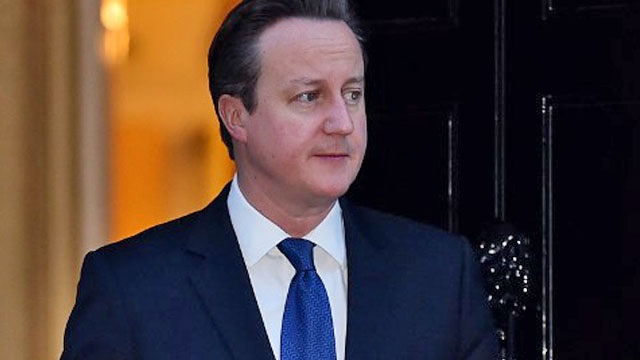SUMMARY
This is AI generated summarization, which may have errors. For context, always refer to the full article.
- Elite cops killed in Maguindanao clashes; Aquino in Zamboanga City
At least 27 members of the Philippine police elite Special Action Force (SAF) were killed in clashes with Muslim rebels in Mamasapano, Maguindanao. A military spokesman said government troops are now “extricating casualties”. The police commandos ran into the camp of the Moro Islamic Liberation Front (MILF) while searching for members of the breakaway Bangsamoro Islamic Freedom Fighters (BIFF). The MILF, which signed a peace pact with the Aquino government, said 5 of its members were also killed. Intelligence sources said the operation was meant to hunt down a top Jemaah Islamiyah (JI) terrorist and Malaysian bomb maker Zulkifli bin Hir, known as “Marwan.” BIFF spokesman Abu Misry Mama denied that Marwan is with the BIFF.
On Sunday, President Benigno Aquino III was also in Mindanao in Zamboanga City – to inspect the security situation in the city following a car bomb explosion that claimed two lives and hurt at least 48 last January 23.
Read the full story on Rappler here and here. - Binay: The people have accepted my explanation
In the face of plummeting approval and trust ratings, Vice President Jejomar Binay is convinced that Filipinos have already “accepted” his explanation regarding his alleged corruption when he was still Makati mayor. In a media interview Saturday, he said charges against him are politically motivated to hurt his 2016 bid for the presidency. Binay has refused to attend the Senate hearings where whistleblowers, led by former Makati vice mayor Ernesto Mercado, accused him of corruption when he was Makati mayor. Maceda also accused Binay of shortchanging the Boy Scout of the Philippines in a land business deal and pocketed some P200 million. Binay has been president of the the BSP for the past 20 years.
Read the full story on Rappler here and here. - Tropical Storm Amang biggest threat to Pope Francis
During Pope Francis’ visit to the Philippines, it was not a terrorist threat that gave intelligence and security officials the biggest headache – it was Tropical Storm Amang, international name Mekkhala. Ambassador Marciano Paynor Jr, head of the organizing committee for the visit told Rappler about the Pope’s Tacloban visit that was cut short, “If we had been delayed by 20 minutes, we would have been hit by the strong crosswind that affected the Global Express Jet.” Another plane which took off after the Pope’s plane skidded off the Tacloban airport.
It was also a security nightmare for Philippine authorities since Pope refused to use a bulletproof jacket and vehicle. Around 37,000 military and police troops were activated to assure his safety. Officials asked telecommunications companies to disrupt cell signals where the Pope would make his rounds. Malacañang Palace officials downplayed actual threats, saying they were only generic and “unverified.” One published report said that the al-Qaeda-linked terrorist group Jemaah Islamiyah had plotted an attack on the pontiff.
Read the full story on Rappler here and here. - Anti-austerity party wins Greek election
Greece rejects austerity measures with the decisive victory of left-wing Syriza party in the national elections. The New York Times reports Syriza’s victory was a dramatic milestone for Europe, the first anti-austerity party to take power in a eurozone country, changing the political game in Greece as it abolishes the two-party political establishment that dominated Greece for four decades. Tough-talking Syriza leader Alexis Tsipras is poised to become the next prime minister. He declared the era of austerity over and promised to revive the Greek economy.
Read the full story on Rappler and the New York Times. - Elites warned about catastrophic cyberattacks
Davos elites were warned Saturday of the terrifying possibilities of modern cyber terrorism including attacks on power plants, telecommunications and financial systems, even turning all of Los Angeles’ traffic lights green. Kaspersky lab security group head Eugene Kaspersky says hacking would only increase in the future as more devices are hooked up to the Internet. Head of the UN’s counter-terrorism unit Jean-Paul Laborde pointed to increasing links between organised crime and extremist groups such as Islamic State. Estonian President Toomas Hendrik Ilves said the line between government-sponsored attacks and criminal activity was becoming increasingly blurred. Top Microsoft executive Bradford Smith warned of the dangers of putting in so-called “backdoors” to messaging systems, as urged by British Prime Minister David Cameron. He said, “The path to Hell starts at the back door.” The World Economic Forum in Davos brings together some 2,500 of the top players in the sphere of finance, business and politics and ends later Saturday.
Read the full story on Rappler. - US reporter jailed for linking to stolen data

A journalist in the United States was sentenced to five years in jail after posting online links to stolen data. Barrett Brown pleaded guilty last year saying he broke the law to reveal details of illegal government activity. Brown, a 33-year-old reporter, was often interviewed about Anonymous and was seen as an advocate for the group. He was arrested after posting a link to data hacked from defence intelligence firm Stratfor. The case drew criticism from advocates of free speech and media rights. Brown said he copy-pasted a link to a “publicly available file that other journalists were also linking to without being prosecuted.”
Read the full story on BBC. - ISIS claims it executed Japanese hostage
ISIS (Islamic State of Iraq and Syria) group says it executed one of its two Japanese hostages. The claim comes a day after the release of a video announcing the murder of security contractor Haruna Yukawa by the jihadist group, raising the pressure on Japan to secure the release of the other captive, freelance journalist Kenji Goto. ISIS is demanding the release of an Iraqi female bomber on death row in Jordan in exchange. The video came with an audio recording in which a man claiming to be Goto says Yukawa was killed because Japan failed to pay a $200 million ransom within a 72-hour deadline.
Read the full story on Rappler. - Hoax caller connected to British prime minister

British Prime Minister David Cameron got an unexpected call from someone claiming to be one of the country’s top spy chiefs. CNN reports it was one of two hoax calls reported Sunday. The first call resulted in the disclosure of a mobile phone number for the Director of Government Communications Headquarters (GCHQ), a British intelligence agency. In the second instance, a hoax caller claiming to be the GCHQ director was connected to the Prime Minister. The Prime Minister ended the call when it became clear it was a hoax. A spokeswoman said no sensitive information was disclosed.
Read the full story on CNN. - Google becoming a wireless carrier

It’s been a long time coming – search giant Google will soon start providing mobile network services along with its Android phones. CNN reports Google will carry its service over existing US carriers Sprint and T-Mobile’s networks. This initiative rounds up Google’s portfolio – it makes the most-used mobile software on the planet, designs phones, offers Internet services with its Google Fiber initiative, and its own VoIP phone service called Google Voice. Google declined to comment on the reports.
Read the full story on CNN. - Big asteroid flies by Earth Monday

A big asteroid flies by Earth on Monday but space agency NASA tells people not to worry. CNN reports the asteroid is called 2004 BL86 and will be at least 1.2 million kilometers (745,000 miles) from the planet at 11:19 AM Eastern Time (or 12:19 AM Tuesday, Manila Time.) This distance is 3 times as far away as the moon, making it close enough for the average person to see it through strong binoculars and for NASA to observe and learn more about asteroids. It will be the closest known asteroid this large to pass near Earth until 2027.
Read the full story on CNN.
Add a comment
How does this make you feel?
There are no comments yet. Add your comment to start the conversation.